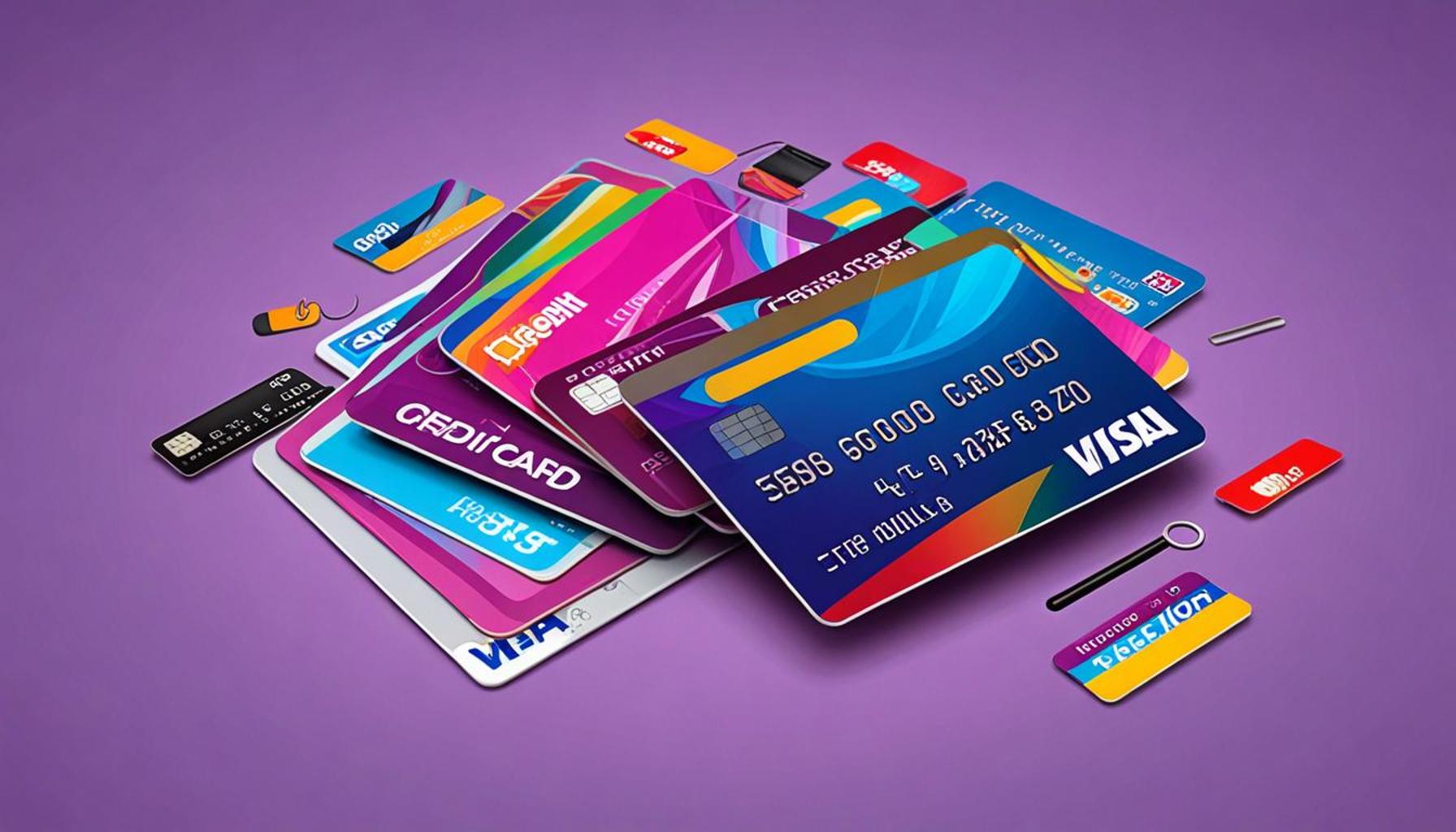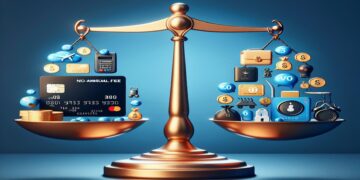Main Advantages and Disadvantages of Using a Credit Card

Understanding Credit Cards
Credit cards are a widely used financial tool in Australia, predominantly for their convenience and the financial freedom they provide. However, with their many benefits come distinct risks that individuals must consider carefully. Having a clear understanding of both advantages and disadvantages of credit cards will empower you to navigate this financial landscape effectively.
Advantages of Credit Cards
- Convenience: One of the primary advantages of credit cards is the convenience they offer. With a credit card, you can make purchases quickly without the need to carry cash or worry about having enough funds in your bank account. For example, when shopping for groceries or booking travel online, simply swiping your card saves time and hassle, allowing for immediate access to goods and services.
- Rewards Programs: Many credit cards come with attractive rewards programs that provide incentives for using the card. These may include earning points that can be redeemed for travel, merchandise, or cashback. For instance, a card might offer 1 point for every dollar spent, which can accumulate to significant rewards over time, particularly for frequent travelers who may earn free flights or accommodation.
- Building Credit History: Responsible use of credit cards is an excellent way to build your credit history. Timely payments and maintaining low balances can improve your credit score, which is crucial when applying for loans or mortgages. A good credit score opens doors to better interest rates and approval odds, ultimately helping you achieve larger financial goals.
Disadvantages of Credit Cards
- Debt Risk: While credit cards can offer financial flexibility, they also come with high-interest rates. If not managed well, it is easy to accumulate debt. For example, if you only make the minimum payments, the outstanding balance grows quickly due to interest charges, leading to long-term financial strain.
- Fees: Credit cards can also incur various fees, such as late payment fees, annual fees, or charges for foreign transactions. For instance, if you miss a payment date, you may find yourself slapped with a hefty fee and a potential increase in your interest rate. These costs can eat into any rewards earned and impact your financial stability.
- Impulse Spending: The convenience of credit cards may lead to overspending. With just a tap or swipe, it’s all too easy to make unplanned purchases. This urge to spend can lead to financial challenges, as people might acquire more debt than they can comfortably manage, especially during sales or promotional events.
In conclusion, understanding credit cards involves recognizing both the benefits they provide and the responsibilities they demand. By weighing these factors carefully, you can make informed decisions that align with your financial goals. Take the time to assess which credit card features are most beneficial for your lifestyle and maintain a disciplined approach to budgeting and spending. This knowledge will help you leverage credit cards to enhance your financial well-being, rather than letting them become a source of stress.
Weighing the Pros and Cons of Credit Card Usage
When considering the use of credit cards, it’s essential to weigh the advantages alongside the potential drawbacks. Understanding these aspects can help you make informed decisions that suit your financial situation and lifestyle.
The Benefits of Credit Cards
Let’s delve deeper into the key benefits of using credit cards:
- Emergency Funds: Credit cards can act as a financial safety net during emergencies. For example, if your car breaks down unexpectedly, you may not have immediate cash on hand for repairs. A credit card allows you to cover these urgent expenses without delay, giving you peace of mind during challenging situations.
- Travel Perks: Many credit cards come with travel benefits, including travel insurance, airport lounge access, and no foreign transaction fees. This can be particularly advantageous for frequent flyers. For instance, having a credit card that waives international transaction fees can save you a significant amount when spending abroad, making travel more affordable.
- Tracking Expenses: Credit cards can simplify expense tracking. Most financial institutions provide monthly statements that categorise your spending, making it easier to manage your finances. By reviewing your credit card statements, you can identify spending patterns and areas where you might want to cut back, helping reinforce better budgeting habits.
Challenges of Credit Card Use
While there are numerous benefits, it’s crucial to also recognize the potential disadvantages:
- Complex Terms and Conditions: Credit cards can come with complicated terms that may be confusing. Understanding the fine print, such as promotional interest rates or balance transfer fees, is vital. Failing to comprehend these terms can lead to unexpected costs and a negative impact on your financial health.
- Impact on Financial Discipline: Credit cards can sometimes challenge your financial discipline. The ease of making purchases can lead to spending beyond your means. It is important to set personal budgets and adhere strictly to them, ensuring that credit card use doesn’t spiral out of control.
- Potential for Fraud: Credit cards carry an inherent risk of fraud. If your card information is compromised, it can lead to unauthorized transactions. While most credit cards offer fraud protection, the repercussions of fraudulent use can still be stressful and time-consuming to resolve.
In summary, credit cards undeniably offer several advantages that can enhance your financial flexibility and convenience. However, they also come with specific risks that warrant careful consideration. By understanding both the benefits and challenges, you can develop strategies that maximise your credit card usage while minimising potential pitfalls.
Understanding the Broader Implications of Credit Card Use
As we continue to explore the advantages and disadvantages of credit card usage, it’s important to look beyond the immediate benefits and challenges. Financial behaviour and long-term impacts can play a significant role in how effectively you manage a credit card.
Additional Benefits of Credit Cards
Credit cards can provide several noteworthy advantages that may not be immediately apparent:
- Building Credit History: Using a credit card responsibly can significantly enhance your credit score. A strong credit history is essential for major financial milestones, such as obtaining a mortgage or an auto loan. Timely payments and maintaining a low credit utilisation ratio are factors that can strengthen your credit profile.
- Rewards Programs: Many credit cards offer attractive rewards, such as cashback, points redeemable for travel, or discounts at popular retailers. For instance, if you frequently shop at certain supermarkets or online stores, choosing a credit card that provides bonus rewards for those purchases can lead to substantial savings. It’s wise to evaluate how you spend to optimise these rewards based on your lifestyle.
- Special Offers and Promotions: Credit cards often come with exclusive offers, including discounts on travel bookings, entertainment, or dining. For example, cardholders might receive special deals during events, such as the Melbourne Cup or Sydney Festival, allowing them to enjoy experiences that align with their interests while saving money.
Drawbacks Beyond the Basics
In addition to the general risks associated with credit cards, there are deeper pitfalls you should be aware of:
- High-Interest Rates: If you do not pay off your full balance each month, the interest rates on credit cards can be incredibly steep. This can lead to significant debt accumulation over time. For example, if you carry a balance of $2,000 at 20% interest, it could cost you hundreds of dollars in interest if not paid off promptly. Understanding how compounding interest works is fundamental to avoiding this trap.
- Fees Can Add Up: Many credit cards have various fees, such as annual fees, late payment fees, and fees for exceeding your credit limit. It’s important to take note of these fees when selecting a card—some cards might seem appealing but could actually be costly if you don’t use them wisely or if you fail to meet certain conditions.
- Psychological Spending Effects: The accessibility of credit can create a disconnect between spending and reality. Unlike cash transactions, which feel tangible, credit card transactions can lead consumers to underestimate their expenditure. For example, a night out can feel less impacting when you’re simply swiping a card rather than handing over cash. It’s crucial to maintain awareness of your total spending to avoid incurring unmanageable debt.
In essence, credit cards provide numerous benefits that can positively impact your financial journey if used correctly. However, they also present challenges that require conscious management and strategic planning. It’s vital to stay informed about both the advantages and disadvantages to leverage credit cards effectively while safeguarding your financial wellbeing.
Final Thoughts on Credit Card Use
In conclusion, understanding the main advantages and disadvantages of using a credit card is essential for any consumer considering this financial tool. On the one hand, credit cards offer remarkable benefits, including the ability to build credit history, earn rewards, and access exclusive promotions. These features can enhance your financial standing and provide savings if used wisely. Many Australians find that making regular purchases with a credit card, followed by timely repayments, not only provides convenience but also contributes to a robust credit score, paving the way for future loans and mortgages.
However, it is equally important not to overlook the potential drawbacks. The high-interest rates associated with credit cards can quickly lead to unmanageable debt, particularly if balances are not paid off monthly. Additionally, various fees can accumulate, often catching users off guard if they are not carefully monitored. Finally, the psychological effects of using credit can result in a spending pattern that may diverge from one’s actual financial reality, leading to overspending.
Ultimately, incorporating credit cards into your financial plan can be beneficial, but it requires a clear understanding of both the upsides and the risks. By being informed and practicing disciplined spending habits, credit cards can serve as valuable tools that align with your financial goals. Remember, a well-managed credit card can not only make life easier but also support your journey towards greater financial health and stability.

Linda Carter is a writer and financial expert specializing in personal finance and financial planning. With extensive experience helping individuals achieve financial stability and make informed decisions, Linda shares her knowledge on the Take Care Garden platform. Her goal is to empower readers with practical advice and strategies for financial success.





